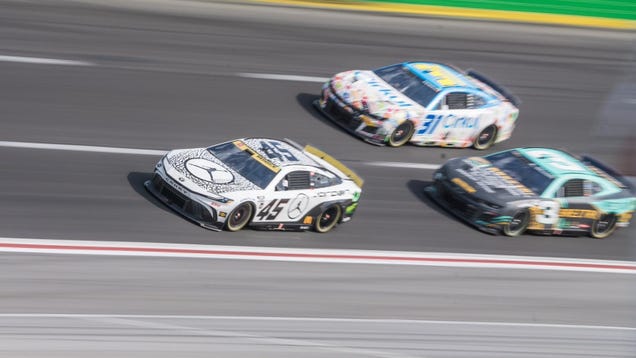NASCAR’s Monopoly: Understanding the Allegations and Implications for Stock Car Racing
The recent lawsuit filed by 23XI Racing and Front Row Motorsports against NASCAR has ignited a significant conversation about the future of stock car racing. The core of the allegations is that NASCAR operates as an unlawful monopoly, stifling competition and innovation within the sport. This article delves into the details of the lawsuit, the implications for teams and fans, and the broader context of competition in motorsports.
The Basis of the Lawsuit Against NASCAR
At the heart of the lawsuit is the claim that NASCAR, under the leadership of CEO Jim France, has created an environment that limits competition among racing teams. The plaintiffs argue that NASCAR’s practices have not only harmed their ability to compete but have also negatively impacted the overall health of the sport. This situation raises critical questions about the governance of racing leagues and the balance of power between sanctioning bodies and the teams they oversee.
The lawsuit highlights specific practices that the plaintiffs believe constitute monopolistic behavior. For instance, NASCAR’s control over race schedules, sponsorship deals, and broadcasting rights can significantly influence which teams thrive and which struggle to survive. By limiting access to these vital resources, NASCAR may be creating an uneven playing field that favors a select few teams, thereby undermining the competitive spirit that is essential to any sport.
The Role of Prominent Figures in the Lawsuit
The involvement of Michael Jordan, a global icon and co-owner of 23XI Racing, adds a layer of intrigue to the case. Jordan’s stature in the sports world brings significant attention to the allegations, potentially influencing public perception and support for the plaintiffs. Alongside Denny Hamlin, another prominent figure in racing, Jordan’s participation underscores the seriousness of the claims being made.
The lawsuit is not just about the financial implications for the teams involved; it also speaks to the broader issues of fairness and opportunity in sports. If successful, this legal action could lead to a restructuring of how NASCAR operates, potentially opening doors for new teams and fostering a more competitive environment.
Implications for Teams and Fans
Should the lawsuit result in changes to NASCAR’s practices, the implications could be profound for both teams and fans. For teams, a more equitable distribution of resources could mean increased opportunities for success, allowing smaller or newer teams to compete on a more level playing field. This could lead to a more dynamic and exciting racing environment, where fans can root for underdogs and witness unexpected outcomes.
For fans, a shift in NASCAR’s operational model could enhance the overall viewing experience. A more competitive field could lead to closer races, more thrilling finishes, and a renewed sense of excitement around the sport. Additionally, increased competition could drive innovation in car design and racing strategies, further enriching the spectacle of stock car racing.
The Broader Context of Competition in Motorsports
The allegations against NASCAR are not isolated; they reflect a larger trend within professional sports where governing bodies are scrutinized for their practices. Similar concerns have arisen in other leagues, such as the NFL and NBA, where questions of fairness and competition have led to legal challenges and calls for reform.
In motorsports, the balance between regulation and competition is particularly delicate. While sanctioning bodies like NASCAR play a crucial role in ensuring safety and fairness, their power must be balanced with the need for competition and innovation. The outcome of this lawsuit could set a precedent for how racing leagues operate in the future, potentially influencing other motorsports organizations to reevaluate their practices.
The Future of Stock Car Racing
As the lawsuit unfolds, the future of stock car racing hangs in the balance. The potential for significant changes to NASCAR’s operational model could reshape the landscape of the sport, fostering a more competitive environment that benefits teams and fans alike.
In the coming months, the racing community will be watching closely as this case develops. The outcome could not only impact the teams involved but also redefine the relationship between NASCAR and the broader racing ecosystem. For fans, this is an opportunity to engage with the sport on a deeper level, advocating for fairness and competition that enhances the thrill of stock car racing.
In summary, the lawsuit against NASCAR raises essential questions about competition, fairness, and the future of stock car racing. As the case progresses, it will be crucial for all stakeholders—teams, fans, and governing bodies—to engage in meaningful dialogue about the direction of the sport and the principles that should guide its governance.

